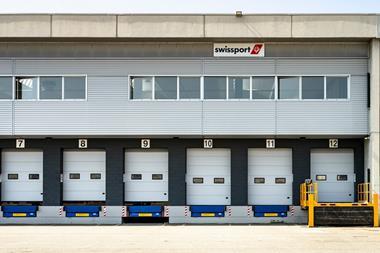BRUSSELS AIRPORT has launched a voluntary pharmaceutical certification programme for local operators, to "upgrade, align and standardise" the pharma handling process.
The BRUcargo initiative is open to all cool chain stakeholders, including airlines, handling agents, freight forwarders and truckers at the key European pharma hub
Steven Polmans, head of cargo at Belgian airport, says: “For several years now, Brussels Airport has focused on improving the cool chain and n pharma handling."
BRUCargo is already active in such industry bodies as the Cool Chain Association and the IATA Time and Temperature Task Force.
Nathan De Valck, managing the training project at Brussels Airport, says: “Today, more and more logistical service providers involved in air freight are looking at Good Distribution Practices (GDP) certification and at meeting international standards.
“But not all companies in the cargo chain can get a GDP licence issued by the Belgian regulator. The legal responsibility of the regulator covers only part of the cargo chain."
He adds: "As a result of this limitation, GDP does not allow the airfreight industry to get a fully certified and a quality cool chain offering transparency and reliability to the shippers."
BRUCargo says that its certificated training programme - based on the GDP - enables every link the pharma logistics chain to show that the required standards and training have been met.
Brussels Airport has worked on a common industry format for the auditing process, in line with GDP and shipper requirements that will be used to assess all stakeholders in the cool chain.
A checklist has been developed in collaboration with and validated by the major Belgian pharma shippers. The Belgian regulator (FAGG) and Customs Administration will also have a voice in the assessment items.
A recent initial workshop brought together representatives from the entire cool chain, and out of that came recommendations to further improve the programme content.
Brussels Airport will limit a first group of companies in the project to 10 participants. A second wave of audits and training will then follow.
Adds De Valck: “The project is on a voluntary basis, nobody is compelled to join. Those companies happy with their current setup can just continue their day-to-day business.
"And for companies that are not yet meeting the requirement today, an additional investment besides the training and audit might be needed, depending on the gaps and the corresponding corrective actions that are identified during the assessment."
In the first phase of the project, Brussels Airport will bear part of the cost because the programme will give a "major boost to the pharma volumes at our airport” says Polmans.
He adds: "It is only by creating a common standard in a very transparent way, and with a high level of quality handling, that we can meet the requirements of the pharma shippers.
"This will be part of what the air cargo industry needs to do to avoid further modal shift to sea freight or other modes of transport.
"We are discussing our project in the different working groups we joined such as the IATA TTTF and the CCA."










